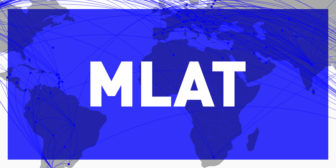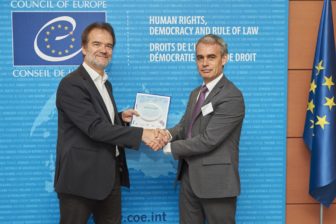Tag: MLAT

Protecting our privacy under the CLOUD: what new agreements should look like
The U.S. is currently in negotiations with the U.K. regarding a CLOUD Act data access agreement. Here’s what any new agreement should have to protect our rights.

Council of Europe cooperation against cybercrime — human rights Octopus or fishy deals?
Use of the Budapest Convention to improve law enforcement access to data must protect human rights.

What happened with the CLOUD Act (and what comes next)
The poorly drafted CLOUD Act doesn’t have adequate privacy protections for people in the U.S. or other countries. What do we do now?

U.S. Microsoft Ireland case shows need for privacy safeguards in cross-border access to data
Any system that permits governments to access data abroad must be built on human rights protections and account for the law of the countries involved.

New U.S. CLOUD Act is a threat to global privacy
This bill would give law enforcement around the globe — particularly in the U.S. — more access to users’ private data without sufficient privacy protections.

Europe is consulting stakeholders on cross-border access to e-evidence. Here’s what we told them.
The European Commission will soon introduce legislation on cross-border access to electronic evidence. That legislation must protect human rights.

A new law could change the U.S. approach to cross-border access to data — for better and worse
The U.S. could help improve cross-border access to data, but not without ensuring there are sufficient protections for human rights.

A policy maker’s guide to the Global Conference on Cyberspace 2017
Our new policy guide aims to help participants at GCCS 2017 fulfill its promise to strengthen global cybersecurity while protecting human rights.

Our fall cheat sheet for the U.S. Congress
Here’s how the U.S. should proceed on “cyber” to keep the internet secure.

Cross-border access to data: NGO position delivered to the Council of Europe
Our comments provide guidance on how to protect human rights when developing new rules on cross-border access to electronic evidence (“e-evidence”).